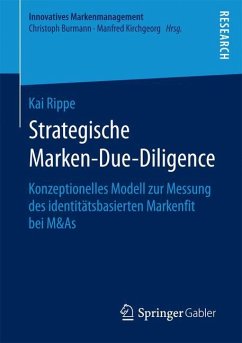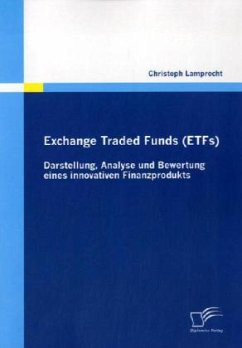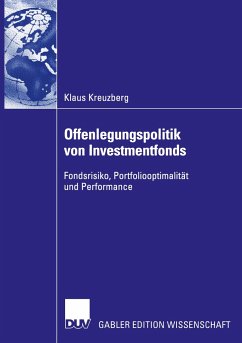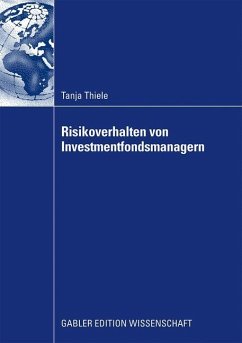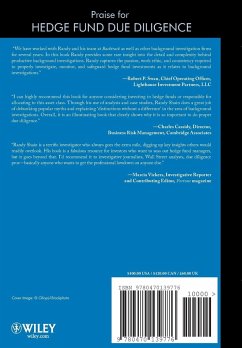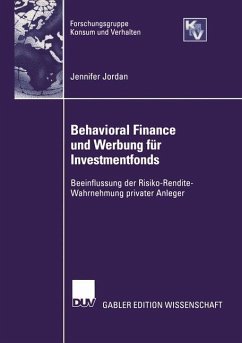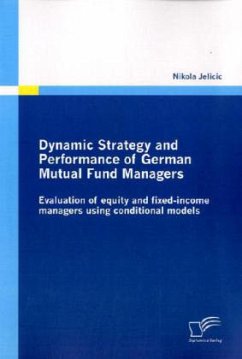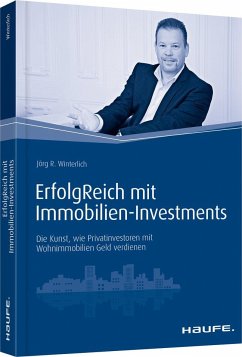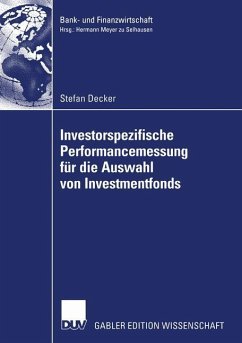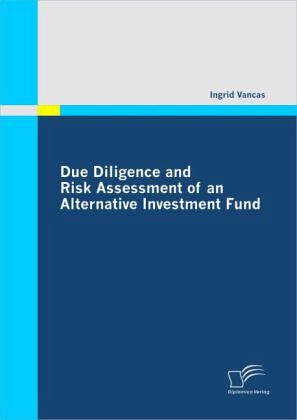
Due Diligence and Risk Assessment of an Alternative Investment Fund

PAYBACK Punkte
0 °P sammeln!
The aim of the book is to provide practical guidance for the investor when compiling due diligence and deciding on an investment or against it. The focus of the book lays on the risk assessment and due diligence. It captures fund s internal and external risks and the investment style specific risks. The aim is to provide sound guidance to the alternative investment fund selection. The UCITS 3 directive widens investment tools for the traditional asset managers by allowing short selling of securities and diminishing the gap between the traditional and the alternative asset management industry a...
The aim of the book is to provide practical guidance for the investor when compiling due diligence and deciding on an investment or against it. The focus of the book lays on the risk assessment and due diligence. It captures fund s internal and external risks and the investment style specific risks. The aim is to provide sound guidance to the alternative investment fund selection. The UCITS 3 directive widens investment tools for the traditional asset managers by allowing short selling of securities and diminishing the gap between the traditional and the alternative asset management industry and attracting traditional managers to the alternative investment universe.
The author concentrates on three categories: Relative Value and Market Neutral, Event Driven and Opportunistic alternative investment funds. Whilst the industry is generally categorized into certain fund types it has to be stated that every fund is different and will have different risk attributes. Within the specific categories major risks will be the same, as the exposure towards the specific underlying will be similar. Still every single fund has to be examined on its own in detail, as it will have the specific alpha generating competitive advantage.
Thus the author suggests a pre-selection of the potential fund manager or the management team by analysing the team and the fund s performance first. The analysis goes through the quantitative figures and the qualities of the management team. Detailed knowledge about the strategies and its fit into the portfolio is worthless unless the investor is able to select the performing manager. Without that skill the probability of ending up with an underperforming alternative investment fund or a blow-up is huge. The analysis of the management team qualities shows behaviour patterns helping to detect management teams, which are tending towards moral hazard. Secondly, the alternative investment fund style specific risks are examined. The author gives an overview over major risks per investment style. The specific investment style risk depending on the combination of the major risks can be a warning sign for the future performance. Thirdly, the fund s internal and external risks are analysed. The internal risks are directly connected to the management team and its operations. The external risks are diverse outside factors influencing the fund s performance, e.g. the industry and the macroeconomic risks.
The risk profile is categorized in five levels thereof the level five is marked as a red flag and automatically falls out of the investment focus. The level one, two and three are favourable investment targets while the level four should be preferably avoided or at least further examined before the final investment decision is done.
The alternative investment funds seem to be more an opportunity than a risk for those who can accomplish thorough due diligence selecting the funds, which will deliver the superior risk-adjusted return. The investor should seek to know as much as possible and obtain information about the factors, which are beyond the manager s control. To invest is an "art" based on the skill and the experience. There is no perfect model to rely on. The business is based on logical and reflexive thinking as well as the strong interpersonal relationships. This foundation creates the conditions to succeed for both, the manager and the investor.
The author concentrates on three categories: Relative Value and Market Neutral, Event Driven and Opportunistic alternative investment funds. Whilst the industry is generally categorized into certain fund types it has to be stated that every fund is different and will have different risk attributes. Within the specific categories major risks will be the same, as the exposure towards the specific underlying will be similar. Still every single fund has to be examined on its own in detail, as it will have the specific alpha generating competitive advantage.
Thus the author suggests a pre-selection of the potential fund manager or the management team by analysing the team and the fund s performance first. The analysis goes through the quantitative figures and the qualities of the management team. Detailed knowledge about the strategies and its fit into the portfolio is worthless unless the investor is able to select the performing manager. Without that skill the probability of ending up with an underperforming alternative investment fund or a blow-up is huge. The analysis of the management team qualities shows behaviour patterns helping to detect management teams, which are tending towards moral hazard. Secondly, the alternative investment fund style specific risks are examined. The author gives an overview over major risks per investment style. The specific investment style risk depending on the combination of the major risks can be a warning sign for the future performance. Thirdly, the fund s internal and external risks are analysed. The internal risks are directly connected to the management team and its operations. The external risks are diverse outside factors influencing the fund s performance, e.g. the industry and the macroeconomic risks.
The risk profile is categorized in five levels thereof the level five is marked as a red flag and automatically falls out of the investment focus. The level one, two and three are favourable investment targets while the level four should be preferably avoided or at least further examined before the final investment decision is done.
The alternative investment funds seem to be more an opportunity than a risk for those who can accomplish thorough due diligence selecting the funds, which will deliver the superior risk-adjusted return. The investor should seek to know as much as possible and obtain information about the factors, which are beyond the manager s control. To invest is an "art" based on the skill and the experience. There is no perfect model to rely on. The business is based on logical and reflexive thinking as well as the strong interpersonal relationships. This foundation creates the conditions to succeed for both, the manager and the investor.




